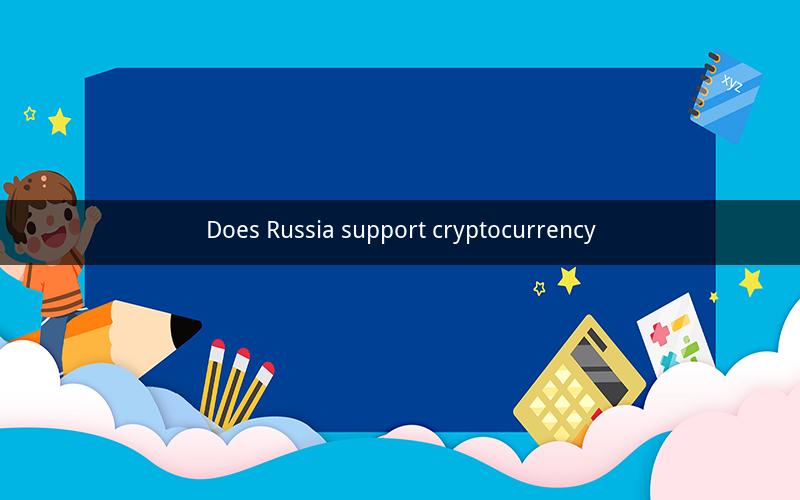
Table of Contents
1. Introduction to Cryptocurrency
2. Overview of Russia's Economic Landscape
3. Russia's Stance on Cryptocurrency
4. Legal Framework and Regulations
5. Cryptocurrency Exchanges and ATMs in Russia
6. The Role of the Russian Central Bank
7. Cryptocurrency Mining in Russia
8. Public Opinion and Acceptance
9. International Comparisons
10. Conclusion
1. Introduction to Cryptocurrency
Cryptocurrency, a digital or virtual form of currency, has gained significant attention in recent years. It operates independently of a central authority and uses advanced encryption techniques to secure transactions. Bitcoin, the first and most well-known cryptocurrency, was introduced in 2009, and since then, thousands of other cryptocurrencies have emerged.
2. Overview of Russia's Economic Landscape
Russia, a country with a vast land area and diverse natural resources, has a complex economic landscape. Its economy is heavily reliant on oil and gas exports, which have historically made the country vulnerable to global commodity price fluctuations. In recent years, Russia has been diversifying its economy and exploring new avenues of growth, including the technology sector.
3. Russia's Stance on Cryptocurrency
Russia's stance on cryptocurrency has been a subject of debate and speculation. While the country has shown interest in blockchain technology, its approach to cryptocurrencies has been cautious. The government has been working on developing a comprehensive regulatory framework to address the potential risks associated with cryptocurrency.
4. Legal Framework and Regulations
The Russian government has been working on legislation to regulate cryptocurrency. The Digital Financial Assets (DFA) law, which came into effect in January 2021, provides a legal framework for the circulation of digital financial assets, including cryptocurrencies. The law aims to protect investors and ensure the stability of the financial system.
5. Cryptocurrency Exchanges and ATMs in Russia
The number of cryptocurrency exchanges and ATMs in Russia has been growing. Moscow and St. Petersburg are among the cities with the highest concentration of cryptocurrency-related businesses. However, the regulatory environment has led to some uncertainty in the market, with some exchanges and ATMs shutting down or relocating to other countries.
6. The Role of the Russian Central Bank
The Central Bank of Russia (CBR) has been actively involved in shaping the country's cryptocurrency policy. The bank has expressed concerns about the potential risks associated with cryptocurrencies, such as money laundering and financial stability. However, it has also recognized the potential benefits of blockchain technology and is exploring ways to integrate it into the country's financial system.
7. Cryptocurrency Mining in Russia
Russia has become a major hub for cryptocurrency mining. The country's vast land area and abundant energy resources make it an attractive destination for miners. However, the government has imposed restrictions on mining activities, particularly in regions with high energy consumption.
8. Public Opinion and Acceptance
Public opinion in Russia regarding cryptocurrency is mixed. While some individuals and businesses are excited about the potential benefits of cryptocurrencies, others are concerned about the risks and the government's regulatory approach. The level of acceptance varies across different regions and demographics.
9. International Comparisons
Russia's approach to cryptocurrency stands in contrast to other countries, such as China, which has banned cryptocurrency transactions, and the United States, which has a more open approach. The varying approaches highlight the complexities involved in regulating a global phenomenon like cryptocurrency.
10. Conclusion
Russia's stance on cryptocurrency is complex, reflecting the country's efforts to balance the potential benefits and risks associated with this emerging technology. The development of a comprehensive regulatory framework and the increasing number of cryptocurrency-related businesses indicate that Russia is gradually embracing the cryptocurrency revolution.
Questions and Answers
1. Q: What is cryptocurrency?
A: Cryptocurrency is a digital or virtual form of currency that operates independently of a central authority and uses advanced encryption techniques to secure transactions.
2. Q: What is the Digital Financial Assets (DFA) law?
A: The DFA law is a Russian legislation that provides a legal framework for the circulation of digital financial assets, including cryptocurrencies.
3. Q: Why has Russia been cautious about cryptocurrency?
A: Russia has been cautious about cryptocurrency due to concerns about risks such as money laundering, financial stability, and the potential impact on the country's economy.
4. Q: How has the Central Bank of Russia (CBR) been involved in shaping cryptocurrency policy?
A: The CBR has been actively involved in shaping cryptocurrency policy by expressing concerns about the potential risks associated with cryptocurrencies and exploring ways to integrate blockchain technology into the country's financial system.
5. Q: What has been the impact of the DFA law on the cryptocurrency market in Russia?
A: The DFA law has provided a legal framework for the circulation of digital financial assets, which has helped to stabilize the market and attract investors.
6. Q: Why has Russia become a major hub for cryptocurrency mining?
A: Russia has become a major hub for cryptocurrency mining due to its vast land area and abundant energy resources.
7. Q: How has public opinion in Russia regarding cryptocurrency been?
A: Public opinion in Russia regarding cryptocurrency is mixed, with some individuals and businesses excited about the potential benefits and others concerned about the risks.
8. Q: How does Russia's approach to cryptocurrency compare to other countries?
A: Russia's approach to cryptocurrency stands in contrast to other countries, such as China, which has banned cryptocurrency transactions, and the United States, which has a more open approach.
9. Q: What are the potential benefits of cryptocurrency for Russia?
A: The potential benefits of cryptocurrency for Russia include diversification of the economy, increased financial inclusion, and the potential for new job opportunities in the technology sector.
10. Q: What is the future of cryptocurrency in Russia?
A: The future of cryptocurrency in Russia is uncertain, but the country's efforts to develop a comprehensive regulatory framework and its increasing interest in blockchain technology indicate that cryptocurrency will continue to play a role in the country's economic landscape.